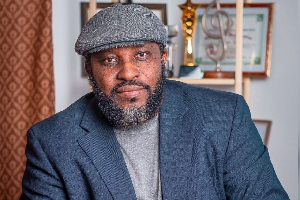Please permit me space on your platform to respond to the above-captioned editorial item which appeared on your platform on October 22, 2012, attributed to the Insight newspaper (Readers can follow the link to the said article: http://www.ghanaweb.com/GhanaHomePage/NewsArchive/artikel.php?ID=253987&comment=0#com). I must state that most of us are by now used to Kwesi Pratt Jr.’s aversion for and constant attacks on the Rawlingses and anything associated with them. But to the extent that Kwesi Pratt Jr. had access to a text message sent to the former president’s cell phone and had the impudence and the indecency to publish that private conversation in his Insight newspaper leaves so much to be desired in a democracy where the institutional checks and balances have long been thrown to the dogs.
Kwesi Pratt, Jr. claims that “persons who have been Rawlings fanatics and loyalists over the last 20 years or more have joined the frenzy and some of the messages sent directly to Mr. Rawlings personal cell phone have not been complimentary at all.” He then went on to reproduce the so-called message “sent to the cell phone of former President Rawlings on Monday, 14, 2012,” in his newspaper.
I must say that we should not allow our aversions for certain individuals to blind our judgment and action in the daily discharge of our duties. I am aware that most newspapers in Ghana including the nonperforming Insight can hardly sustain their operations without news on the Rawlingses. But going to the extent of reproducing a text message sent to someone’s private cell phone in order to please our paymasters and to advance our “confused socialist populism” leaves such a bad taste in the mouths of all civil-minded democrats. This act is against the spirit of ethical practices in journalism, it is unfortunate, and it is most reprehensible.
The following questions should focus our attention beyond the Rawlingses to the extent that we can consider our personal conversations being published in newspapers or monitored by state institutions without any mandate whatsoever to do so, either because we chose to participate in the public life or we offend someone’s sensibilities by our actions and utterance:
I. How did Kwesi Pratt Jr. access the text message from the former President’s phone? II. Are there any rules, or at least any ethical provisos, regarding people’s private conversation in Ghana? III. Can it be independently proven that such a message was received by the ex-President via his cell phone (the network carriers can be contacted for verification and confirmation)? IV. Are there any privacy rules in Ghana? V. Is the Ghana National Media Commission alive to its duties? VI. Does the national security apparatus pass on people’s private conversations to newspapers? VII. What was Kwesi Pratt Jr.’s motive?
Let us not in our frenzy to undo individuals we have aversion for embrace practices that expose our own agenda and cast us in the most reprehensible lights. In functional democracies where the privacy of the individual is protected by the laws of the state, Kwesi Pratt Jr. would have questions to answer for this uncivil act.
Indeed, counterpublics are recognized avenues of dissention in the physical public sphere. The idea is acceptable in digital sphere and label hacktivism, whereby hacktivist (just as activist in the physical public sphere) hack into institutional databases and private phones and emails among other privately held information to score political goals. But as the phenomena is becoming very prominent in global politics, it raises questions of where the lines should be drawn between individuals right to privacy and the right of the hacktivist in matters of privavcy invasion. The hacking of private phones by the UK newspaper the News of the World and the hacking of Sarah Palin’s private email and the hearings that followed in the legislature and the court of the respective countries illustrate the point.
Going by his self-acclaimed title of an activist, one is tempted to bring him under the digital activist title of a hacktivist. But this only lead us to now turn the searchlight on him for motives and whether those motives can be said to be within the permissible rules of the state. If they are not within the permissible rules of the state, what do we do with him to set the benchmark for others who might chose to follow such unscrupulous practices?
Prosper Yao Tsikata pytsikata@yahoo.com
Opinions of Saturday, 27 October 2012
Columnist: Tsikata, Prosper Yao
Re: Rawlings is suffering
Entertainment













